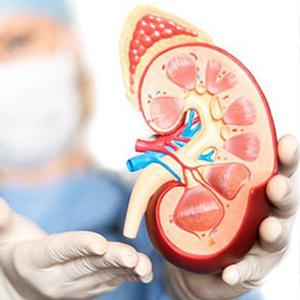Common Kidney Disorders Treated by a Nephrologist in Vijayawada
Nephrology is a specialized branch of medicine that focuses on the diagnosis and treatment of kidney diseases and disorders. Nephrologists are medical professionals who have undergone extensive training to diagnose, manage, and prevent kidney-related issues. Experienced nephrologists in Vijayawada deal with a wide range of kidney disorders, including
- Chronic Kidney Disease (CKD) : A progressive condition characterized by a gradual decline in kidney function over time, often caused by diabetes, hypertension, or glomerulonephritis.
- Acute Kidney Injury (AKI) : A sudden and often reversible decline in kidney function, which can be triggered by factors such as dehydration, blood loss, or exposure to nephrotoxic medications.

- Glomerulonephritis : Inflammation of the glomeruli, the tiny blood vessels within the kidneys responsible for filtering blood. This condition can lead to proteinuria (protein in the urine) and may cause CKD if not adequately managed.
- Kidney Stones : Hard deposits made of minerals and salts that form in the kidneys and may cause severe pain during urination or passing stones.
- Polycystic Kidney Disease (PKD) : An inherited disorder characterized by the growth of multiple cysts within the kidneys, leading to kidney enlargement, impaired function, and potential kidney failure.
Nephrology doctors in Vijayawada use various diagnostic techniques to evaluate kidney function and diagnose kidney disorders. Some common diagnostic methods include:
- Blood Tests : Assessing levels of creatinine, urea, and electrolytes can provide insights into kidney function and the presence of kidney-related disorders.
- Urine Tests : Examining urine for protein, blood, or casts can help identify kidney damage or dysfunction.
- Imaging Studies : Techniques such as ultrasound, computed tomography (CT), and magnetic resonance imaging (MRI) can help visualize the kidneys and detect abnormalities, cysts, or obstructions.
- Kidney Biopsy : A procedure in which a small sample of kidney tissue is removed and examined under a microscope to diagnose specific kidney disorders or assess the severity of kidney damage.
- Glomerular Filtration Rate (GFR) Test : A blood test that estimates how well the kidneys are filtering waste from the blood, providing an indication of kidney function.
Treatment Options:
Some common treatment options include:
- Medications : Nephrologists may prescribe medications to manage high blood pressure, reduce inflammation, prevent the progression of kidney disease, or treat symptoms such as pain or nausea related to kidney stones.
- Dietary Modifications : Adjusting dietary habits, such as limiting salt, protein, or potassium intake, can help manage kidney disorders and slow the progression of CKD.
- Fluid Management : Monitoring and restricting fluid intake may be necessary for patients with advanced kidney disease or heart failure to prevent fluid overload.
- Dialysis : A life-sustaining treatment for patients with end-stage kidney disease, in which a dialysis machine filters waste products and excess fluids from the blood when the kidneys can no longer perform this function effectively.
- Kidney Transplantation
RENAL Transplant
A renal transplant, also known as a kidney transplant, is a surgical procedure that involves replacing a patient's failed or damaged kidney with a healthy donor kidney. This life-saving treatment is typically performed for individuals with end-stage kidney disease (ESKD), a condition in which the kidneys can no longer effectively filter waste products and excess fluids from the blood. Renal transplantation offers patients an opportunity to regain a more normal quality of life and potentially cure their kidney disease.
Donor Sources:Kidney transplantation in Vijayawada can use kidneys from two primary sources:
- Living Donors : These are healthy individuals who voluntarily donate one of their kidneys to the recipient. Living donors can be genetically related or unrelated to the recipient.
- Deceased Donors : These are individuals who have suffered brain death and have agreed to donate their organs, including their kidneys, to help save the lives of others.
The renal transplant process involves several steps:
- Evaluation : Before transplantation, both the donor and recipient undergo a thorough medical evaluation to ensure they are suitable candidates for the procedure
- Matching : The donor's kidney is matched with the recipient based on blood type, tissue compatibility, and other factors to minimize the risk of rejection.
- Surgery : The surgical procedure by Kidney transplant surgeons in Vijayawada involves connecting the donor kidney to the recipient's blood vessels and urinary system.
- Immunosuppression : To prevent the recipient's immune system from rejecting the donor kidney, patients must take lifelong immunosuppressive medications. These drugs help suppress the immune response that could attack the transplanted organ.
Post-Transplant Care: Following the transplant, patients require ongoing monitoring and care to ensure the successful functioning of the new kidney. This may include regular blood tests, adjustments to immunosuppressive medications, and follow-up appointments with the transplant team.
If you are looking for Kidney specialist in Vijayawada, consult doctors at BEST Superspeciality Hospital, one of the Best kidney transplant hospital in Vijayawada.
